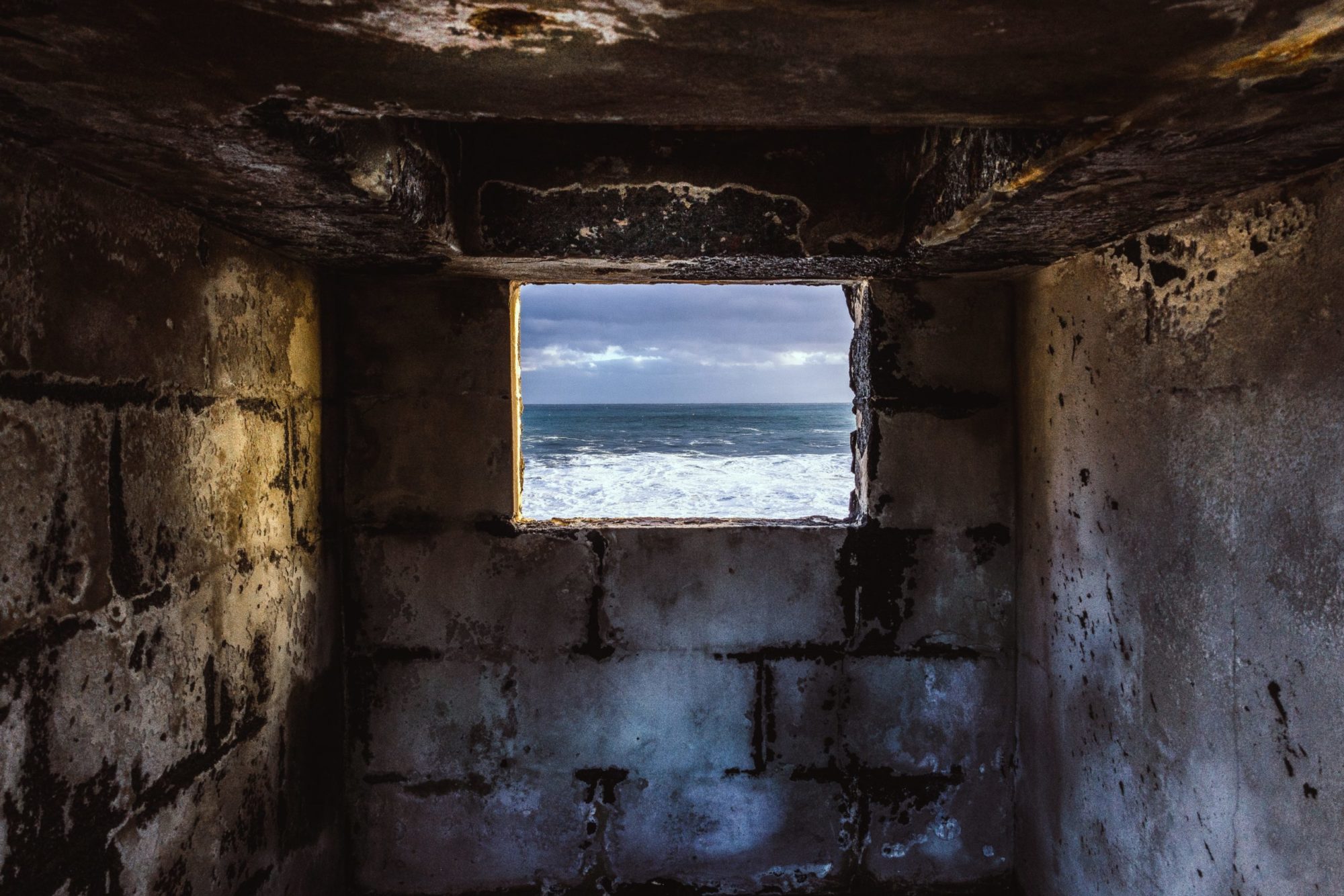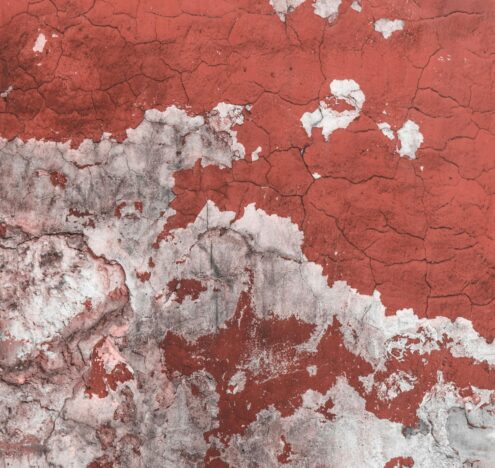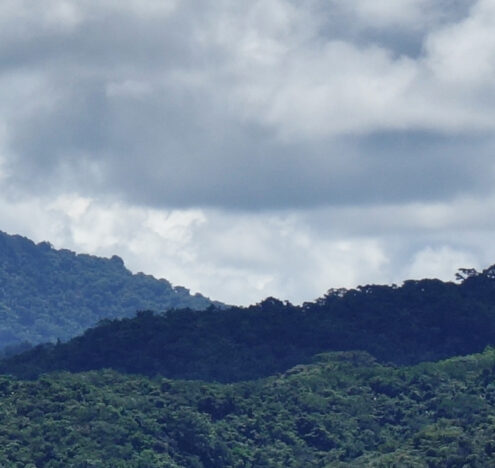Patrick O’Neill shifted in the front seat of his car, struggling to catch the best WiFi connection. Before we began talking, he called out to his wife, asking her to watch for a text from his probation officer who wanted to see him before he reports to prison. On the day we spoke, Patrick explained he had already been under house arrest or curfew for two and a half years.
Patrick, who describes himself as a “hardcore Catholic,” runs the Fr. Charlie Mulholland Catholic worker house in Garner, North Carolina which he founded with his wife in 1991. And while he has lived in the south most of his life, Patrick never shed the Bronx accent of his youth. Standing over six feet tall, bespectacled, and with a shock of thick white hair atop his head, Patrick could pass for David Byrne if he wore a big suit.
The first time I spoke with Patrick, he had just ten days before he was to report to Federal Correctional Institution Elkton, a low security federal prison in Lisbon, Ohio where he is now serving a 14-month sentence for a 2018 action taken by he and six fellow Catholic peace activists known as the Kings Bay Plowshares 7.
The activists have taken their name from the Prophecy of Isaiah which reads, “…and they shall beat their swords into plowshares, and their spears into pruning hooks.” The Plowshares 7 practice principled, non-violent Catholic war resistance, a movement that goes back decades. The Catholic Left has been championed by the late Dorothy Day (the grandmother of current Plowshares 7 activist Martha Hennessy), brothers Father Daniel and Philip Berrigan, and 81-year-old Elizabeth McAlister, a former Catholic nun and the widow of Phil Berrigan.
Since at least 1980, Plowshares activists have been protesting militarism and nuclear weapons. Their actions draw inspiration from the burning of draft cards during the US war in Vietnam. In April 2018, Patrick and his six counterparts targeted the nuclear weapons stored at Kings Bay.
Kings Bay is in Camden County, southeast Georgia, and is home to Naval Base Submarine Kings Bay, a sprawling 16,000-acre complex that includes 4,000 acres of protected wetlands with hundreds of birds, mammals, reptiles and endangered animals such as gray foxes, southern bald eagles, ospreys, and manatees.
PSYCHO KILLER
Kings Bay is also home to Strategic Weapons Facility, Atlantic and six Ohio-class nuclear submarines that carry up to 20 Trident II D5 ballistic missiles. The D5 flies 20,000 feet per second, traveling up to 7,000 miles at a cost of more than $30 million a shot. Each missile can deliver as many as eight warheads with yields ranging from 8 to 455 kilotons (over 30 times larger than the bomb dropped on Hiroshima).
In 2020, arms manufacturer Lockheed Martin announced it would build additional D5 missiles to fulfill a nearly half-billion-dollar order under the D5 Life Extension Program to “enhance the missile’s capability.”
On April 4, 2018, the 50th anniversary of the assassination of Dr. Martin Luther King, Jr., the Kings Bay Plowshares 7 recorded an action statement as they prepared to sneak inside the base to protest nuclear weapons.
It is the environmental and humanitarian catastrophe, perhaps even omnicide, that would result from the use of nuclear weapons, that motivated Patrick and his Plowshares 7 partners to take action at King’s Bay.
HOW DID I GET HERE?
On April 4, 2018, the 50th anniversary of the assassination of Dr. Martin Luther King, Jr., the Kings Bay Plowshares 7 recorded an action statement as they prepared to sneak inside the base to protest nuclear weapons.
Early that evening, using bolt cutters, the seven opened a section of gate in a remote corner of the base. As the sun set, they walked undetected for several miles into the heart of the nuclear facility. In the dark, they moved freely, splitting into three groups, each targeting a different area.
Patrick and fellow activist Mark Colville headed to a life-sized display of strategic nuclear weapons replicas (Polaris A-1, Tomahawk cruise missiles, and a D5). As Patrick pounded on the D5 model with a hammer, two things happened. First, he hit the concrete missile replica so hard that his hammer broke. Second, he realized that contrary to what he’d been expecting, they didn’t have just a few minutes to complete their action but were able to carry on for well over half an hour. They had ample time to affix a poster of Martin Luther King with a second banner bearing the MLK-inspired phrase, “The ultimate logic of Trident is omnicide.”
Eventually base security drove by and appeared to notice the intruders, but continued on its way. Meanwhile, three others — Elizabeth McAlister, Steve Kelly, and Carmen Trotta — had gone to what they believed was the site of nuclear bunkers while Martha Hennessy and Clare Grady targeted base headquarters. At all three sites, the protesters poured vials of their own blood on the base’s insignia and the D5 model and strung yellow CRIME SCENE tape in front of the headquarters entry along with spray-painted slogans like “Love One Another” and “Abolish Nukes Now.”
Recalling the night’s events, Patrick noted that their action was the first time intruders had ever penetrated the base. During their trial, they were accused of illegally entering a “restricted area” but, in keeping with Department of Defense protocol, no reference to nuclear weapons was ever made.
WARNING SIGN
For their action, the Kings Bay Plowshares 7 were given a prison sentences ranging from 33 months (Father Kelly) to 10 months with Patrick receiving 14 months. The length and severity of their sentences were based, in part, on their past records and whether or not they had expressed remorse. They were also ordered to pay $33,503 in restitution for property damage.
During his trial, the judgment that Patrick had “risked [his own] death” was cited as an aggravating factor that moved his sentencing guidelines higher. Patrick countered that argument by pointing out that the group went to great lengths to ensure they would not be perceived as potential threats to armed security personnel and were very deliberate in demonstrating their pacifist, peaceful stance, and intent to protest, not endanger.
Patrick said he feels a sense of responsibility to give his eight children and two grandchildren a future filled with promise and hope. “I don’t want [them] to look back on my life and say ‘grandpa knew about all of this and he didn’t do anything.’ I don’t want that to be my legacy.”
Quoting Philip Berrigan with a statement he has committed to memory, Patrick said, “We don’t want to appear heroic, the sacrifices people make for war every day are far more grievous than what we have done.”
The sacrifice of serving a 14-month prison sentence, Patrick believes, cannot compare with the sacrifice of being sent to fight a war. He sees prison in terms of the Catholic concept of “redemptive suffering.” He called it part of the process, adding “I can’t avoid the consequences. I would be a phony if I did.”
For those who want to protest nuclear weapons but are not prepared to break into a nuclear submarine base to do so, Patrick urged people to withdraw consent.
“Withdraw your consent to the status quo in this country. The status quo is unacceptable,” he said in reference to what Martin Luther King called the triple evils of war, racism, and poverty. In a 1967 speech, King said, “The Congress attempts to legislate repression. Millions, yes billions, are appropriated for mass murder. But the most meager pittance of foreign aid for international development is crushed in the surge of reaction. Unemployment rages at a major depression level in the black ghettos but the bipartisan response is an anti-riot bill rather than a serious poverty program.”
That same year, in his “Beyond Vietnam” speech King said, “Every man of humane convictions must decide on the protest that best suits his convictions, but we must all protest.”
DON’T WORRY ABOUT THE GOVERNMENT
Still seated in the front seat of his car, Patrick stared at me on his cell phone as he explained how the US government has transformed the fear of nuclear weapons into adoration. The idea, he said, was to exalt nuclear weapons into a kind of state religion that is impossible to reject, so-called “nuclearism.”
No matter what religion one follows (or doesn’t), Patrick said all people have a role to play in making a world in which peace and love conquer war and hate and where justice overcomes injustice. “People have to have a change of heart in their approach to living, and that’s withdrawing their consent,” said Patrick before we ended our call.
Today Patrick and his partners, all of them between 58 and 81 years old, await sentencing or are serving time behind bars during a pandemic that is raging in prisons. In the wake of the Jan. 6 Capitol Riot and violent white-nationalist coup attempt in support of a president who spent his final days pardoning liars, cheats, and convicted war criminals, the Kings Bay Plowshares 7 are imprisoned for refusing to accept a world held hostage by nuclear weapons.
Patrick began his prison sentence four days before the Martin Luther King, Jr. holiday and one week before the United Nations Treaty on the Prohibition of Nuclear Weapons enters into force. That agreement, while rejected by all nine nuclear nations, was adopted with support from 122 countries and has, to date, been ratified by 51 states. As of Jan. 22, 2021, the nuclear ban treaty becomes international law under which the Trident II D5 and all other nuclear arms, like chemical and biological weapons, become illegal.
Patrick and the other Kings Bay Plowshares 7 will mark the day from prison. When they are finally released, the world will have changed. But like failed politicians, toxic ideologies, and deadly viruses, Patrick is praying that so too will the threat of nuclear annihilation be extinguished. Some may argue that disarmament is ultimately in God’s hands, but humans invented these monstrous weapons, and through their actions they can hasten their end.
Jon Letman is a Hawaii-based independent journalist covering people, politics, and the environment in the Asia-Pacific region.





















